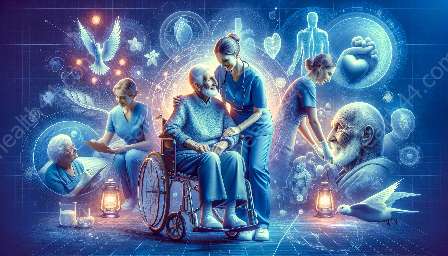As the elderly population grows, geriatric assessment and diagnostic skills have become crucial in providing effective nursing care. This topic cluster aims to explore the significance of geriatric assessment in nursing, focusing on the unique needs of geriatric patients. By enhancing your knowledge in geriatric nursing, you will be able to deliver comprehensive care, promoting the well-being of elderly individuals.
The Importance of Geriatric Assessment and Diagnostic Skills
Geriatric assessment involves the comprehensive evaluation of an older adult's health status, functional abilities, cognitive function, and social support system. This process helps identify potential health issues, assess the impact of aging on the individual, and develop personalized care plans to address the specific needs of geriatric patients.
Diagnostic skills are equally vital in geriatric nursing, as they enable nurses to accurately identify health conditions, monitor changes in elderly patients' health status, and facilitate timely interventions. By honing these skills, nurses can contribute to improved health outcomes and better quality of life for older adults.
Key Components of Geriatric Assessment
Geriatric assessment encompasses various dimensions of older adults' well-being, including physical, cognitive, emotional, and social aspects. It involves evaluating mobility, sensory functions, nutritional status, cognitive abilities, psychological well-being, and social support networks.
Furthermore, assessing the presence of geriatric syndromes such as frailty, falls, incontinence, and delirium is essential in recognizing the complex healthcare needs of elderly patients. By addressing these syndromes through targeted interventions, nurses can enhance the overall care experience for geriatric individuals.
Enhancing Diagnostic Skills in Geriatric Nursing
Developing robust diagnostic skills in geriatric nursing involves understanding the unique clinical presentations of health conditions in older adults. For instance, older patients may exhibit atypical symptoms or subtle changes that require a keen eye and comprehensive assessment to detect.
Furthermore, nurses must be adept at differentiating age-related changes from pathological conditions, recognizing the influence of multiple comorbidities, and identifying potential drug interactions in elderly patients. Fostering these diagnostic abilities contributes to accurate and timely interventions, positively impacting the health trajectory of geriatric individuals.
Integration of Geriatric Assessment and Diagnostic Skills
The seamless integration of geriatric assessment and diagnostic skills empowers nurses to deliver holistic care to older adults. By utilizing the insights gathered from thorough assessments, nurses can tailor interventions that address the specific needs, preferences, and goals of geriatric patients.
Moreover, proficient diagnostic skills complement geriatric assessment by enabling nurses to interpret assessment findings, formulate differential diagnoses, and collaborate with interdisciplinary teams to optimize care plans for elderly individuals. This collaborative approach enhances the overall quality of care and promotes positive health outcomes in the geriatric population.
Continuing Education in Geriatric Nursing
Continual professional development is integral to staying up-to-date with advancements in geriatric assessment and diagnostic practices. Engaging in ongoing education, specialized training, and participation in geriatric-focused conferences equips nurses with the latest evidence-based strategies and tools to enhance their geriatric nursing practice.
Furthermore, fostering a deeper understanding of age-related changes, geriatric syndromes, and diagnostic nuances empowers nurses to navigate the complexities of caring for elderly patients with proficiency and compassion.
Conclusion
Geriatric assessment and diagnostic skills are fundamental components of nursing care for the elderly. By prioritizing comprehensive evaluations, honing diagnostic acumen, and integrating evidence-based practices, nurses can optimize the well-being and quality of life for geriatric patients. Embracing the continuous pursuit of knowledge and skills in geriatric nursing enables nurses to provide exceptional care that addresses the unique needs of the aging population.


